Newsletter
Go beyond the scoreboard
Get the latest on L.A.'s teams in the daily Sports Report newsletter.
You may occasionally receive promotional content from the Los Angeles Times.
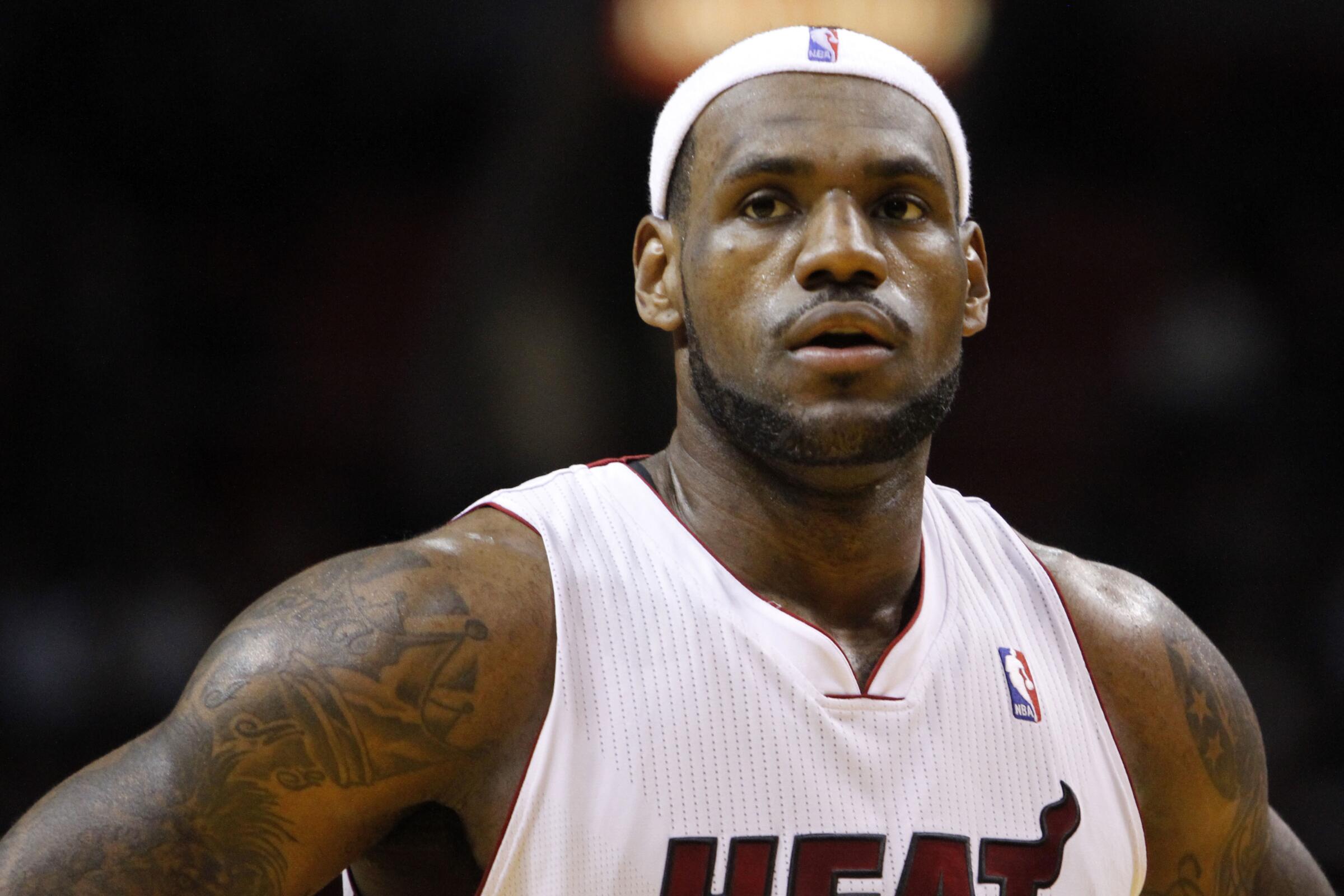
In a decade of sports media experimenting with diverse delivery — a 3-D dive and virtual reality’s potential, while pivoting to video and podcasting with more big dreams about streaming — we’ll hang 10 monumental moments from the 2010 decade we believe created the biggest waves in Southern California and caused ripple effects elsewhere:
Oct. 2, 2016: Vin Scully retires as Dodgers’ play-by-play man after 67 years
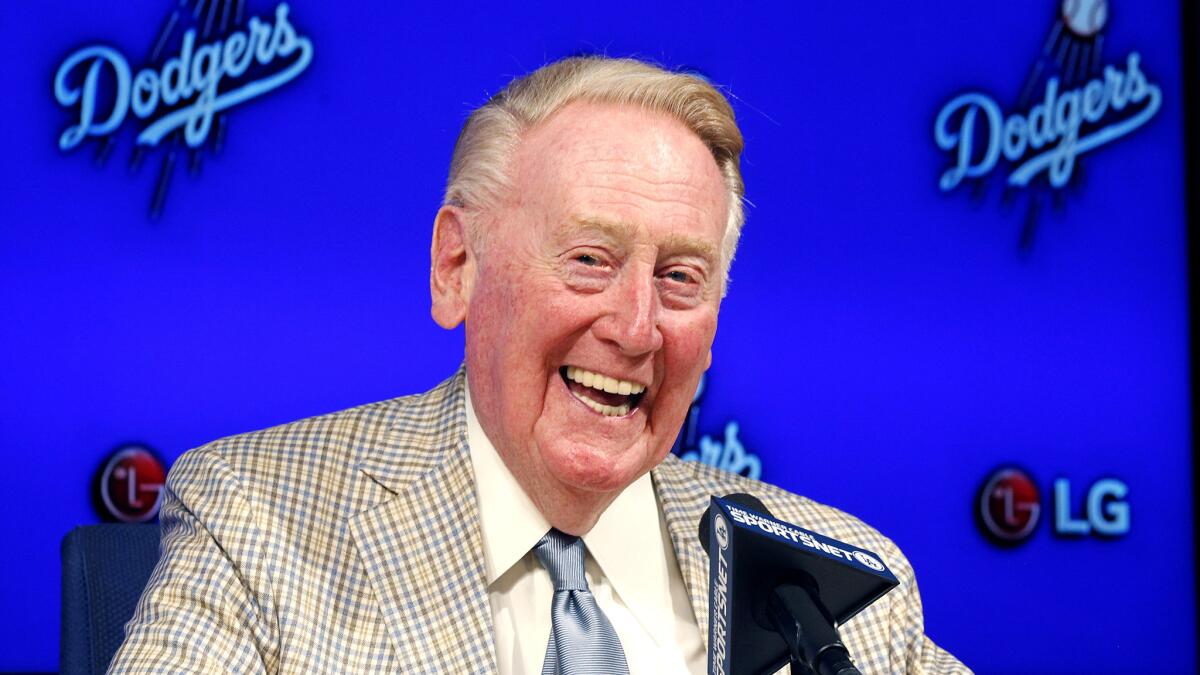
“I have said enough for a lifetime, and for the last time, I wish you all a very pleasant good afternoon,” the 88-year-old Scully said, ending his last Dodgers’ SportsNet LA telecast in San Francisco.
Starting a three-year stretch where we also saw the departures of Hall of Fame broadcasters such as the Kings’ Bob Miller in 2017 and the Clippers’ Ralph Lawler in 2019, Scully provided a blueprint on how to bow out gracefully, with a belief the next generation of broadcast talent was capable of taking the torch. Joe Davis, Alex Faust, Brian Sieman and even Noah Eagle don’t dare say they’ve replaced a legend, rather setting their own course with lessons learned from the masters.
Feb. 25, 2014: The 25-year, $8.3-billion deal for the Dodgers-owned SportsNet LA
However we quantify how many Southern Californians now have the channel Time Warner launched and Charter-Spectrum now runs, the Dodgers’ windfall doesn’t fully reflect the long-reaching implications this deal will have with fans. Once upon a time, Prime Ticket was the Dodgers’ local TV caretaker, along with a package of free over-the-air games. Whatever distribution issues remain, it hasn’t discouraged the Chicago Cubs from launching their own channel starting in 2020. And Major League Baseball won’t assert its “best interest of the game” clause to remedy any of it.
Feb. 15, 2011: The Lakers take a $4-billion, 20-year-deal with Time Warner Cable
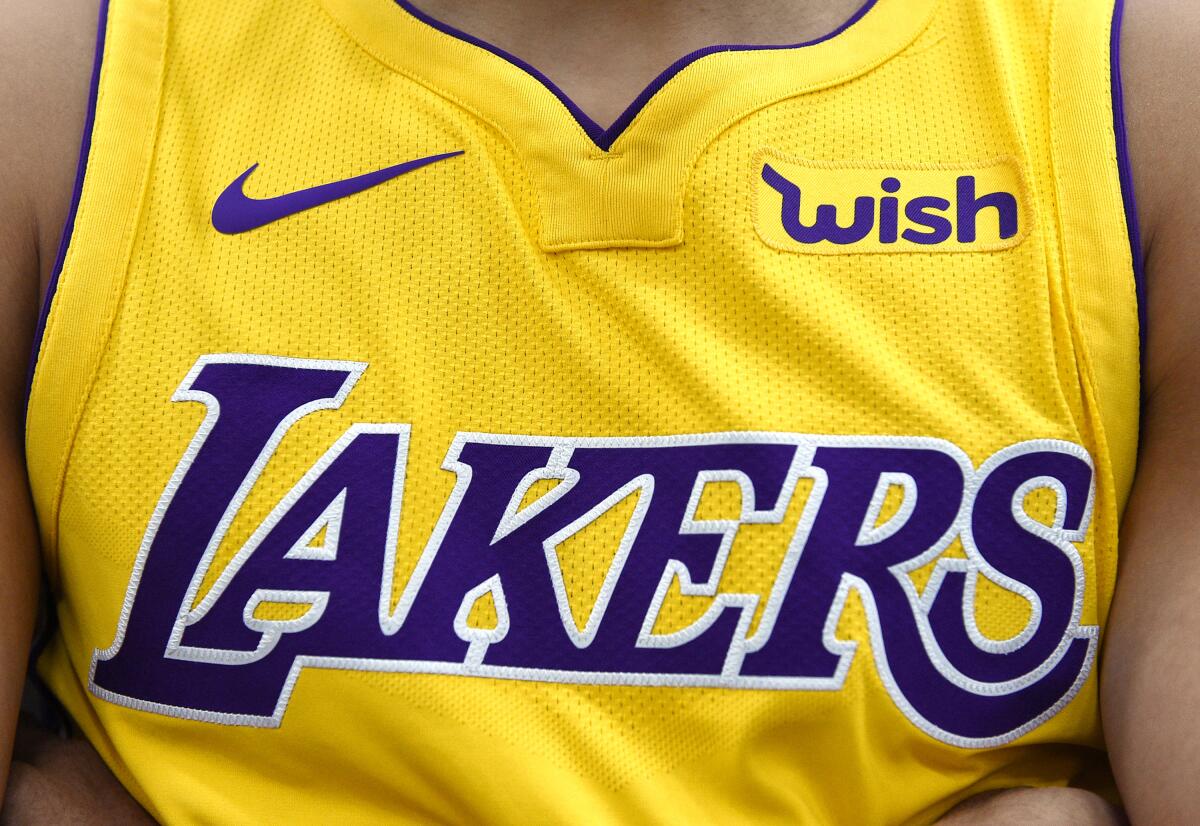
The richest local TV rights deal in NBA history gave the Lakers, coming off back-to-back championships, a reason to divorce Fox Sports West as well as their longtime relationship with over-the-air KCAL-Channel 9. The MLS Galaxy and WNBA Sparks also jumped on board for what’s now called Spectrum SportsNet. The promise gave them exposure on the nation’s first Spanish-language regional sports channel — TWC Deportes. In August of 2018, Spectrum shut down that experiment after a five-year run, citing small viewership.
April 25, 2014: TMZ Sports releases racist audio clips of Clippers owner Donald Sterling
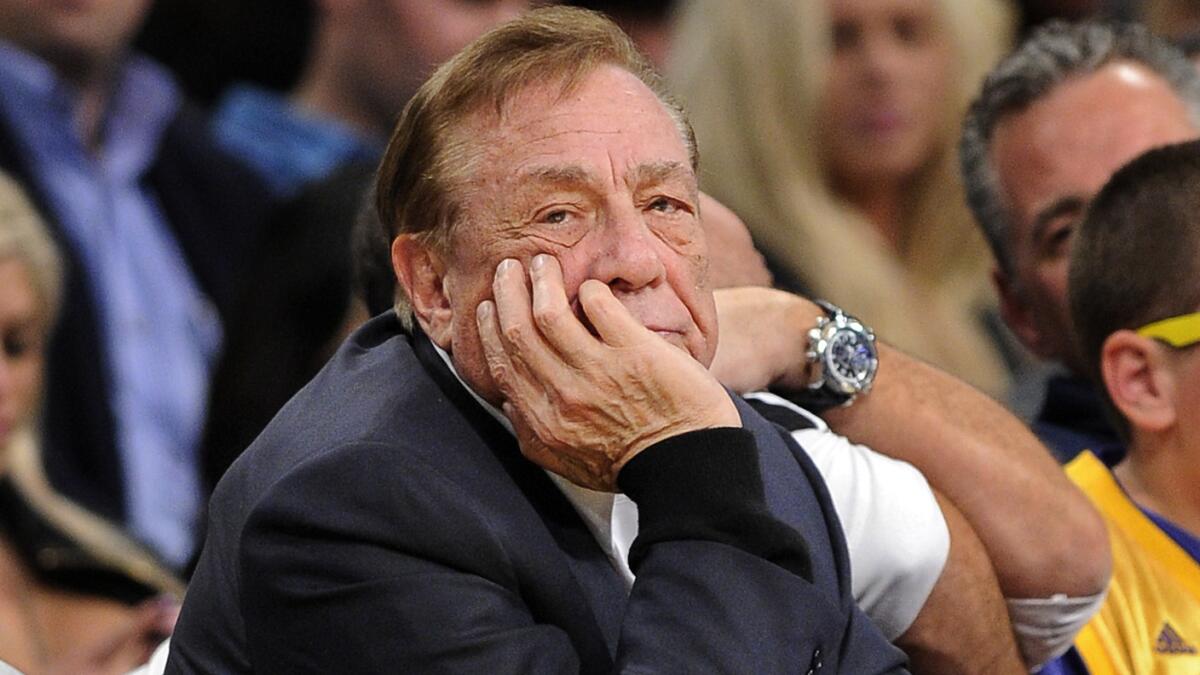
The L.A.-based celebrity-centric media organization TMZ, which made a name for itself blasting Tiger Woods’ transgressions in 2009, now had the Clippers owner in its crosshairs. Sterling’s companion gave up private phone conversations, leading the NBA to ban him for life with a $2.5-million fine within days of the story. A month later, the team was sold to Steve Ballmer. Sterling sued for invasion of privacy, but TMZ was dismissed from the claim for its 1st Amendment rights. A court ruled it could publish the remarks because they concerned an issue of public interest.
Aug. 24, 2015: ESPN’s Jessica Mendoza is the first female commentator on an MLB game
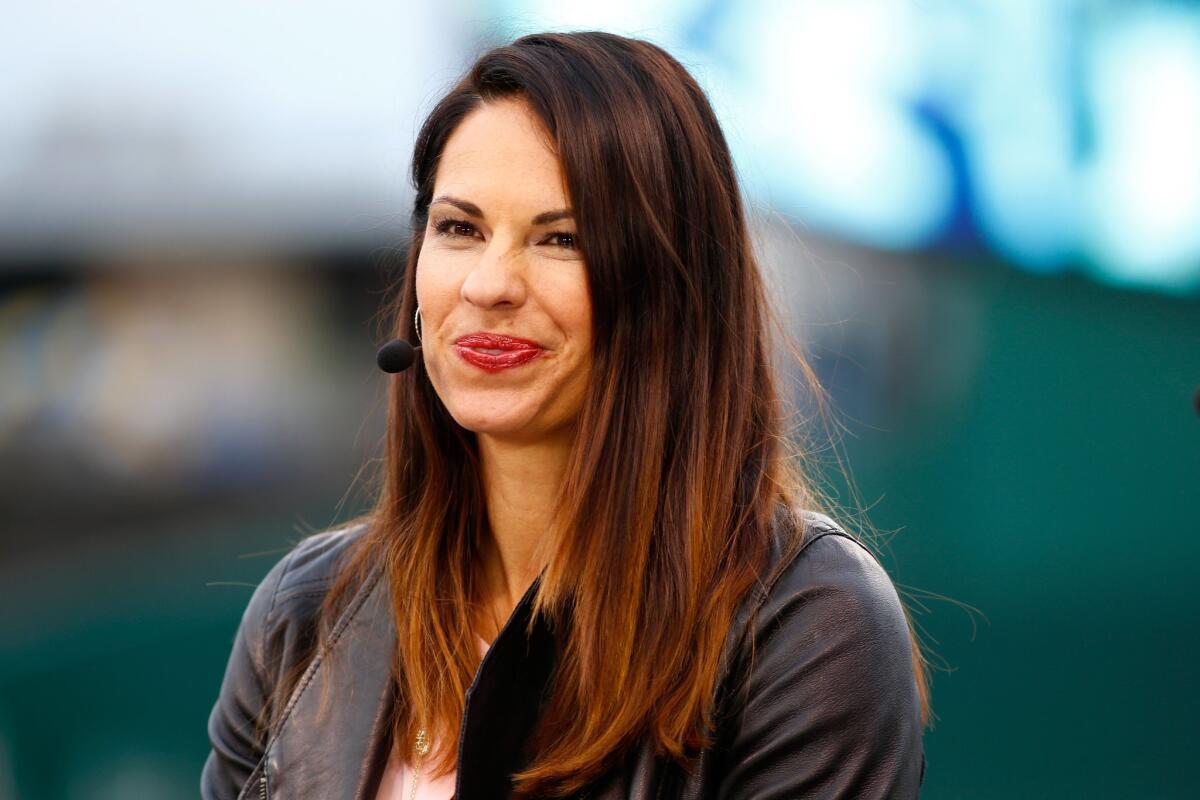
Forget the sexist backlash. The Olympic softball star out of Camarillo did a Cardinals-Diamondbacks national telecast six days before she was dispatched to Dodger Stadium, replacing Curt Schilling, for a Dodgers-Cubs “Sunday Night Baseball” game noted for a Jake Arrieta no-hitter. Then Mendoza did an MLB playoff game, another first. Four months later, ESPN gave her the “SNB” full-time gig. Two years after that, ESPN was emboldened to bring in San Diego-based Beth Mowins to call a “Monday Night Football” game.
Aug. 17, 2013: Fox Sports 1 launches
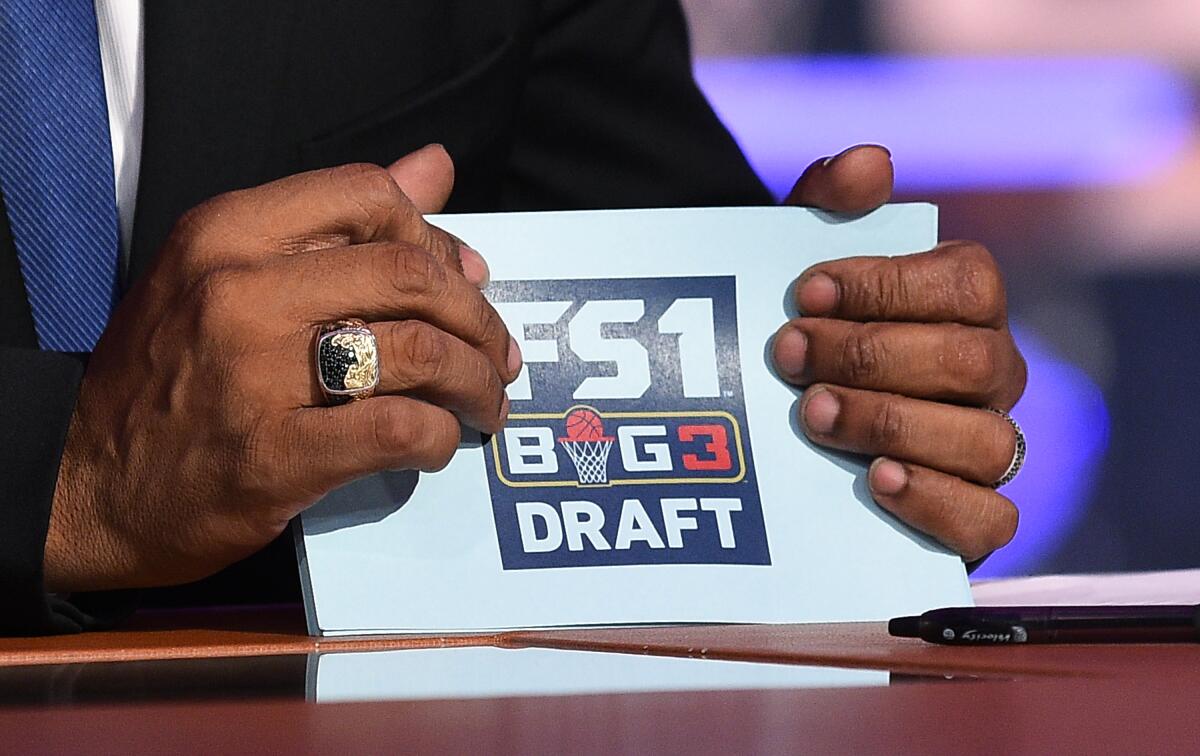
Headquartered in Westwood and blasting shows from the Fox studios in Century City, the rebranded cable channel took a direct charge at ESPN as a Fox Sports platform for MLB, NASCAR, college sports, MMA, soccer and USGA eventws. With a reach of more than 84 million homes, Fox could crow about its major leap, even if FS1’s first headliner show, “Crowd Goes Wild!” hosted by Regis Philbin, lasted eight agonizing months. The network also made noise hiring Colin Cowherd from ESPN in 2015 and giving studio airtime to controversial figures Pete Rose, Alex Rodriguez, Reggie Bush and Urban Meyer.
Aug. 23, 2019: Sinclair Broadcasting pays $9.6 billion for the Fox Sports regional sports networks
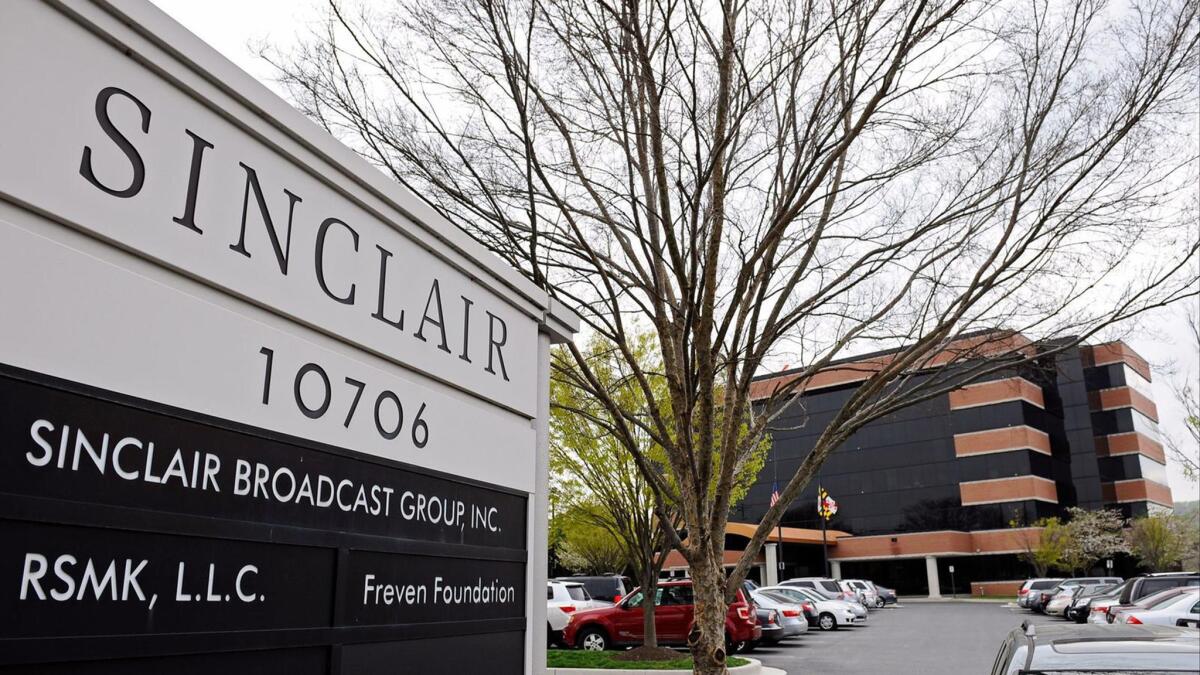
Fox Sports West, Prime Ticket and Fox Sports San Diego looked like lost children in a custody battle after they were three of the 21 Fox regional sports networks sold to Disney in its original $71.3-billion deal to buy out 21st Century Fox in 2018. Regulators forced Disney to sell off those RSNs, and Sinclair, which also bought L.A.-based Tennis Channel in 2016, now controls the local TV future of the Clippers, Angels, Kings and Ducks.
June 1, 2016: Bill Simmons rings in TheRinger.com
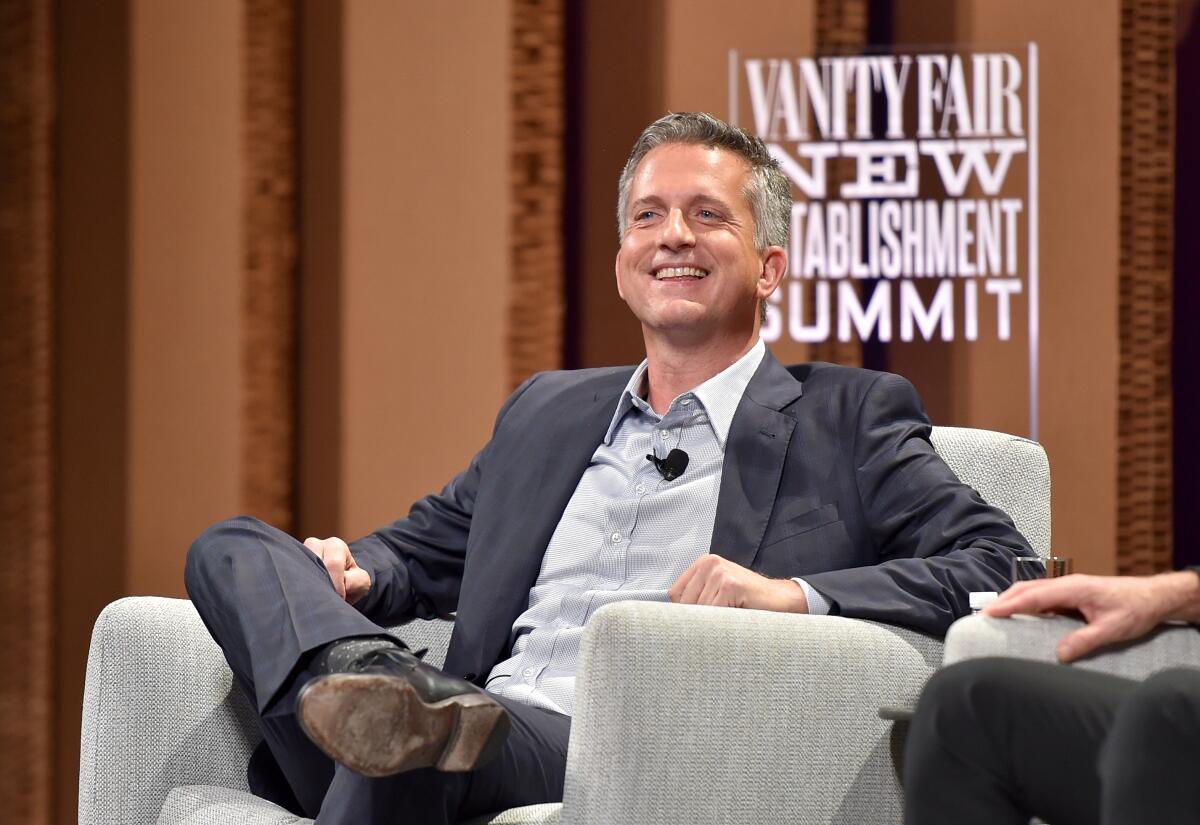
Simmons cultivated a sports following by writing from the viewpoint of the passionate fan — no matter how many words that took. It led to a sports-and-culture website Grantland.com (launched in 2011, shuttered in 2015), and less than a year after ESPN didn’t renew his contract, he created TheRinger.com, a new multi-media company in L.A., focusing on a podcast network that has reportedly generated millions in ad sales.
Feb.26, 2017: ESPN’s “O.J.: Made in America” wins the Academy Award for Best Documentary Feature

“O.J.: Made in America” wins Best Documentary Feature at the Oscars.
The $5-million production that first aired as a seven-hour-plus cable TV miniseries was pushed into limited theatrical release through the power of ESPN Films. It worked. The L.A. Times proclaimed that by winning an Oscar, the documentary “vanquishes boundaries” for its “untraditional” presentation. A year later, Kobe Bryant was taking an Oscar for “Dear Basketball” as Best Animated Short Film. A connection? Maybe not, but a door was cracked open on how Hollywood and a sports entity could team up.
July 8, 2010: LeBron James’ “The Decision” TV show for ESPN

LeBron James makes his decision to join the Miami Heat in 2010.
Some 13 million viewers tuned into this Jim Gray-shaded circus tent to see where the NBA superstar would take his talents next — turns out, it was from Cleveland to Miami. It achieved its intent of compacting a news event into a reality TV framework under the guise of a fundraiser, which then-ESPN ombudsman Don Ohlmeyer wrote became “a metaphor for what ails the media today.” Looking back, this was the springboard for the current Laker to become his own media company and eventually brought him to mesh his professions in L.A. by the decade’s end. TNT’s Charles Barkley said at the time the whole “Decision” thing was a “punk” move. But, really, who got punk’d?
Go beyond the scoreboard
Get the latest on L.A.'s teams in the daily Sports Report newsletter.
You may occasionally receive promotional content from the Los Angeles Times.